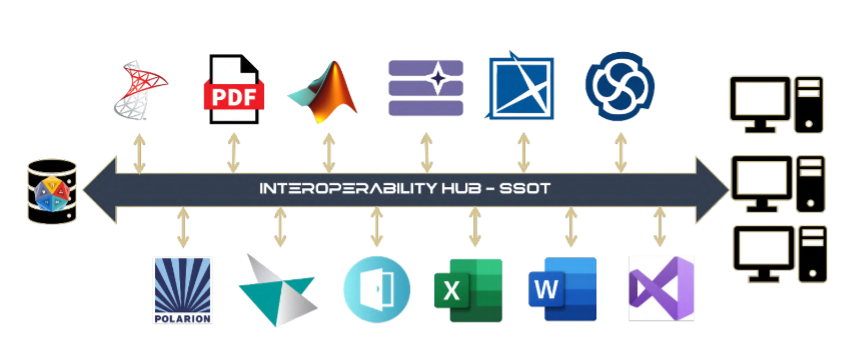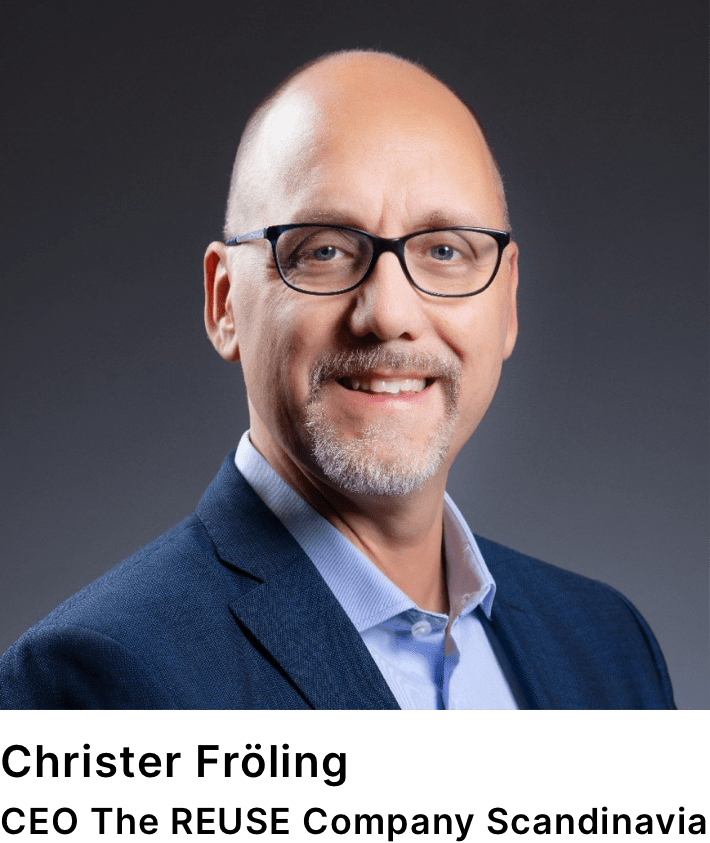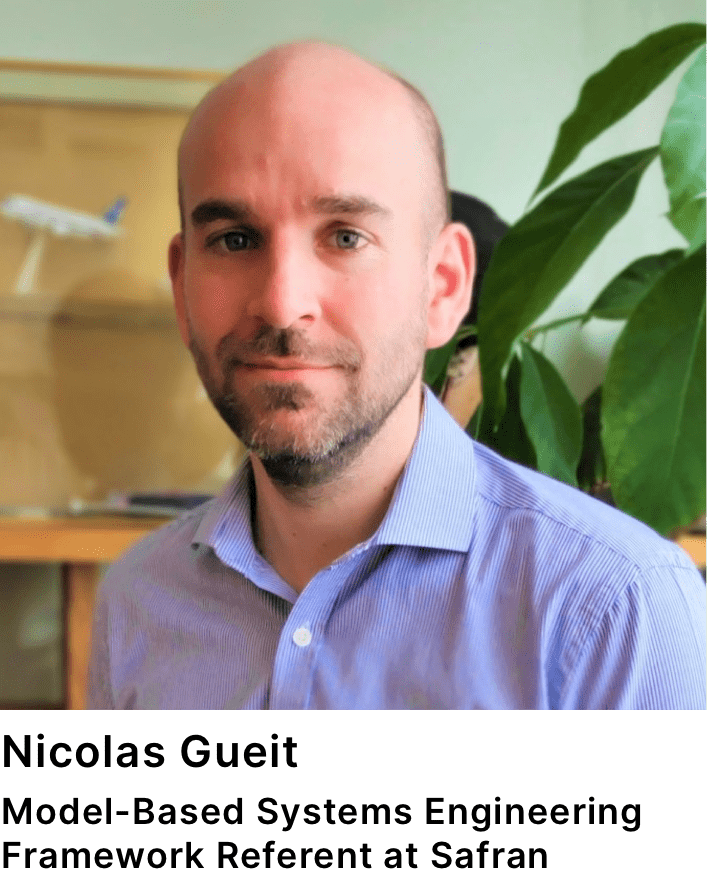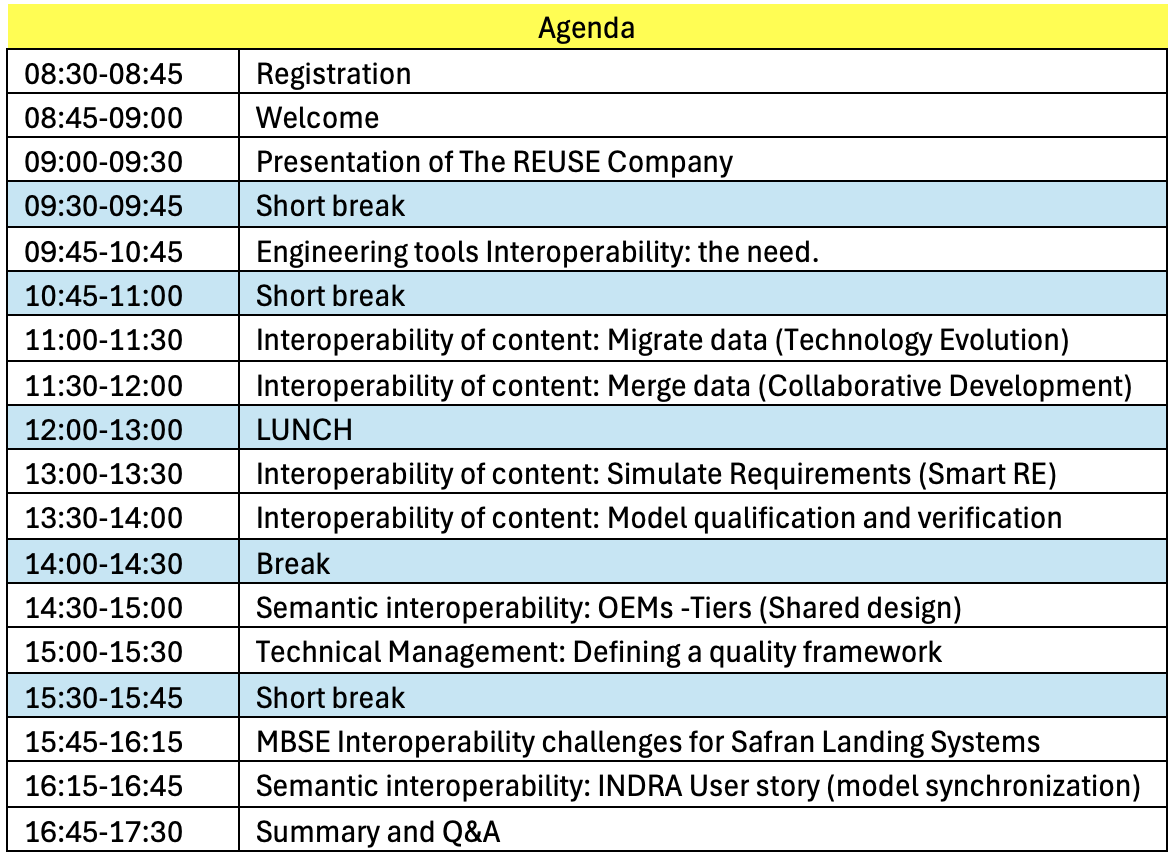TRC Forum Stockholm
The REUSE Company Forum
TRC Forum Stockholm
When: August 20, 2024
Where: Stockholm, Sweden
Systems Engineering Interoperability Day
The REUSE Company (TRC) is hereby inviting you to a day full of insights, shared knowledge, and demonstrations on how to perform Systems Engineering in a complex toolchain type of environment.
Increasing complexity in the design and development of modern cyber-physical systems requires a high level of collaboration across disciplines. To maintain a complete digital thread, high standards of quality, and reasonable time frames, computer-assisted collaboration is increasingly necessary. Data integration that enables cross-domain reasoning and collaboration on the engineering items, requirements, and models level is key to enabling and enhancing computer-assisted engineering and design across multiple abstraction levels, domains, and disciplines.
When systems engineers demand the integration of different engineering tools, they often face significant challenges with point-to-point interoperability. Here is a simple explanation of the difficulties involved and why an Interoperability Hub can be a more effective solution:
- Complexity of Point-to-Point Integration: Imagine trying to connect every phone in a town directly with wires so everyone can talk to each other. As more people move in, the number of wires will increase dramatically, making it complicated and messy. This is like point-to-point integration, where each tool must be directly connected to every other tool it needs to communicate with. As the number of tools increases, this setup becomes increasingly complex and hard to manage.
- Maintenance and Scalability Issues: With point-to-point integrations, any change in one tool (like an update or an upgrade) can break the connections, requiring frequent adjustments. This setup doesn’t scale well as more tools are added because each new tool potentially requires multiple new direct connections to all other relevant tools.
- Interoperability Hub – A Streamlined Solution: Now consider an Interoperability Hub, which acts like a central telephone exchange. Instead of connecting every SE tool directly with each other, each tool connects to the hub, and the hub manages all communications, interactions, qualities, etc. This setup reduces the number of connections each tool must maintain from potentially hundreds down to just one.

- Single Source of Truth: An Interoperability Hub also enables the concept of a “single source of truth.” This means that all data passes through one central point where it can be standardized, checked for accuracy, and distributed in a controlled manner. This reduces errors, simplifies data management, and ensures that everyone is working with the most current and accurate information.
Once the connectivity and interoperability concepts are supported within a heterogeneous ecosystem of Systems Engineering tools, we can set the focus on the different possibilities enabled by them. In this event, we will present and discuss the concepts of Interoperability of content (logical models, documents, requirements, 3D models, etc) and one strong application for interoperability between Organizations.
In summary, while point-to-point integration can be initially straightforward, its complexity, difficulty in maintenance, and poor scalability make it less effective as the number of tools increases. The SES ENGINEERING Studio provided by The REUSE Company, acts as an Interoperability Hub allowing the simplification of connections, reduces maintenance overhead, and ensures consistent and correct data across all tools, making it a superior solution for an efficient Systems Engineering tool ecosystem. Join us to get insight and information about these concepts and solutions!
TRC Forum Stockholm





